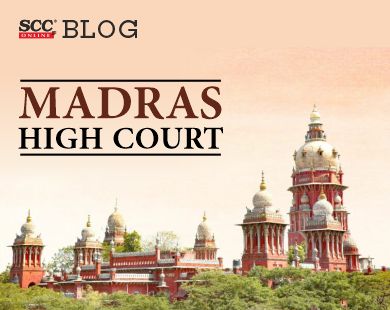Madras High Court: In a petition for declaration of arbitration award passed by the Singapore International Arbitration Centre (‘SIAC’), Senthilkumar Ramamoorthy, J. recognised the foreign award as a decree . The Court discussed the various grounds for refusal of foreign award against the provisions of Arbitration and Conciliation Act, 1996 and found that the respondents having failed to establish any ground for refusal of foreign award, therefore, are required to pay the amounts claimed by the petitioners.
Diving into the background of the matter, the respondents were in negotiations with the petitioners for purchase of Compulsorily Convertible Preference Shares (‘CCPS’), Optionally Convertible Preference Shares (‘OCPS’) and Equity Shares. The present petition alleges that the respondents defaulted on the payment of all the tranches after paying the first tranche of Rs 5 Crores.
Petitioners issued notice calling upon the respondents to engage in discussions and negotiations to settle the dispute. Notice of arbitration was issued to the SIAC by the petitioners pertaining to disputes arising under Share Purchase Agreement (‘SPA’) and letter agreement specifying the SIAC rules, Singapore as the seat of arbitration and Indian law as the governing law. SIAC pronounced the foreign award holding the petitioners entitled to damages for breach of SPAs by the respondents and concluded that the loss caused due to the breach was the total unpaid consideration of Rs. 195 crores. The foreign award was challenged before the Singapore International Commercial Court and was rejected vide judgment dated 24-12-2021.
In the instant case, the Court noted that the SPAs provide for purchase of securities at cumulative sale consideration of Rs 200 Crores, payable in 14 tranches. These SPAs do not indicate the basis on which the said purchase price was arrived at. The letter agreement was also executed contemporaneously dealing with the purchase of 12,49,98,800 shares.
The Court analysed the grounds on which enforcement of foreign award may be refused, as provided under Section 48 of the Arbitration Act which were classified into three groups in Vijay Karia v. Prysmian Cavi E Sistemi SRL, (2020) 11 SCC 1. For the instant matter, the Court said that the foreign award should be tested for deciding the contravention of fundamental policy of India by the first three SPAs, as narrowly construed in Renusagar Power Co. Ltd. v. General Electric Co., (1984) 4 SCC 679.
The petition in the Court’s opinion must be decided on the basis that “unless the foreign award contravenes a fundamental and non-derogable principle or core value, whether enshrined in statute or otherwise, refusal to recognise is not warranted. Indeed, even an erroneous interpretation of the law would not qualify as a ground to refuse recognition.”
The Court analysed the Arbitration Tribunal’s conclusions in the arbitration award regarding grounds for enforcement of foreign awards, and noted the following pointers:
-
The conclusion about market value of the shares of the Company, as on date of breach, was drawn on appraisal of evidence and cannot be said to be contrary to the fundamental policy of Indian law.
-
The conclusion that the SSHAs and SPAs are not void is substantially in consonance with the law laid down in Vijay Karia.
-
The rights, liabilities and obligations imposed in a contract should survive and the Tribunal’s recognition of the same is evident from the conclusions in paragraph 128, 139 and 172 that the relevant shares could have been transferred with RBI approval. Therefore, such conclusions also do not contravene the fundamental policy of Indian law.
-
On the question of whether the object or consideration of the SPAs and the Letter Agreement violate the public policy of India since it violates Section 67(2) of Companies Act, 2013, the Arbitral Tribunal’s analysis and conclusions are eminently reasonable and cannot be characterized as being in breach of the fundamental policy of Indian law.
-
While considering the award of interest, the Tribunal relied upon Section 20 of the Singapore International Arbitration Act and Rule 32.9 of the SIAC Rules 2016, which also does not violate the public policy of India.
The Court concluded that the respondents have failed to establish any ground for refusing the recognition of foreign award and payment of amounts claimed by the petitioners and therefore, recognised the same to be enforceable as a decree of this Court, subject to RBI’s approval before initiating further proceedings for enforcement.
[GPE (India) Ltd. v. Twarit Consultancy Services Pvt. Ltd., 2023 SCC OnLine Mad 46, decided on 5-01-2023]
Advocates who appeared in this case :
For Petitioners: Senior Advocate P.S. Raman, Advocate K. Gowtham Kumar and Advocate Athiban Vijay;
For Respondents: Senior Advocate Satish Prasaran, Advocate Vishnu Mohan.







